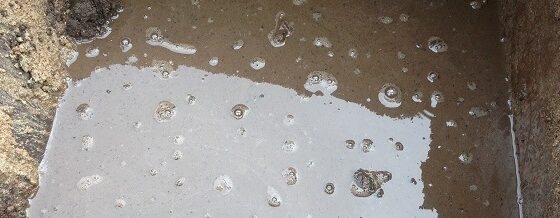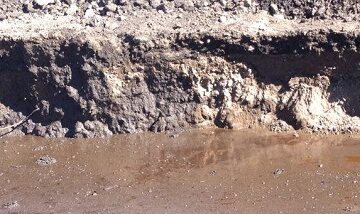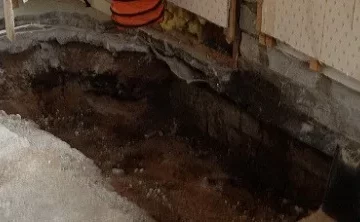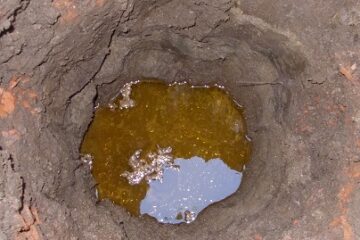The discovery that a skeleton found below a car park in Leicester actually is the remains of the former king of England Richard III is a wonderful example of the fact that you never really know what you might find when you dig a hole in the ground.
The photo above was taken on a site where despite the surrounding boreholes showing no signs of contamination it turned out that the ground water was locally very contaminated with hydrocarbons. It’s amazing how often people encounter buried structures, tanks or deposits of contaminated material when they start digging and unlike in the movies striking oil is generally not a good thing. It’s quite common to find things which a Phase I investigation couldn’t possibly be expected to identify because they happened between mapping editions or were never recorded.
Even worse is if through simple bad luck the Phase II investigation also misses something, like the undeclared borrow pit that was backfilled with building rubble and waste oil canisters. Ultimately trial pits and boreholes are only ever a snapshot of the sub-surface conditions and particularly on a brownfield site, conditions can change massively in the space of a few metres.
Then you come to site to start building, dig out the foundations of your building and find the unwelcome surprise of some contamination. So what do you do? Well in that hypothetical situation when you’ve got timetables slipping and standing time charges mounting up you essentially require a fast spill response. It’s a bit counter-intuitive for a spill which could have happened 30 years ago but the principles of identifying and rectifying the problem quickly are precisely the same.
The eventual solution might take a little while to put in place but a skilled and professional contractor will at least be able to take steps to limit the immediate effects of the contamination and stop it getting worse. Following this immediate response they can give you an options appraisal so that you can make an informed decision on how to fix your unexpected find. This should allow you to deal with the problem and keep your costs to a minimum.
If this scenario is sounding horribly familiar to you then give us a call, we might not know where the last Plantagenet king of England should finally come to rest but we do know about dealing with contaminated land.
2021
Soil remediation guide
Approaching soil remediation without any prior knowledge can be difficult and uncomfortable at times, especially when it can potentially be very costly. This free eBook will help you understand the whats, the whys and the hows of soil remediation in the simplest terms.







Leave a Reply